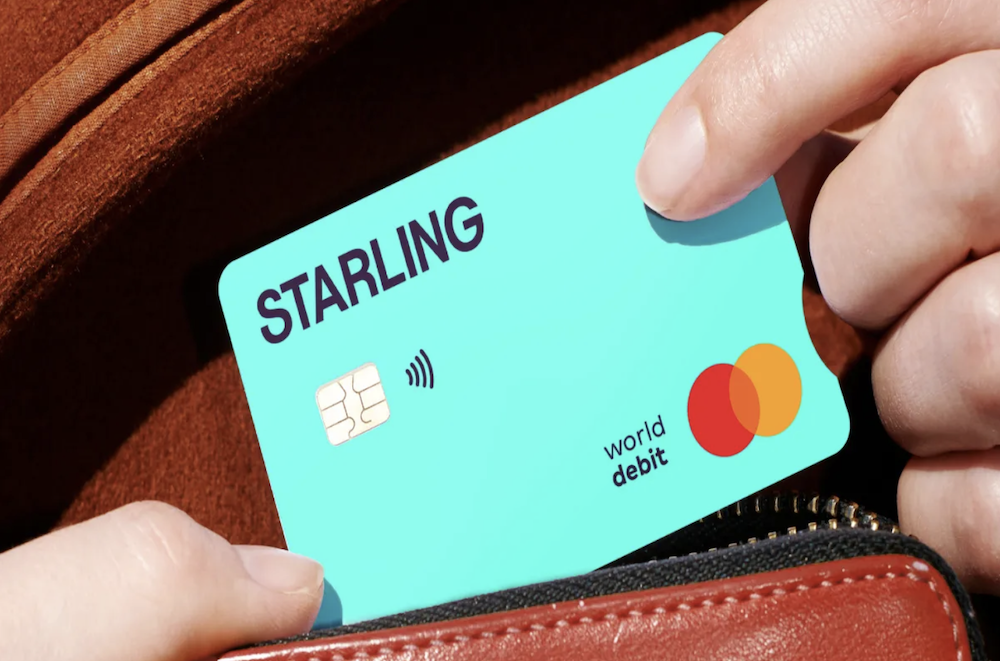Does brand truly drive business growth, or is it merely a reflection of underlying strategy?
The recent evolution of the UK fintech veteran, Starling, provides a compelling case study for marketing specialists.
Starling has overhauled its brand to include a fresh new colour palette, new slogan and a significant name change (dropping “Bank”) amidst slowing core growth and operational challenges.
This is more than a coat of fresh paint. I imagine the team behind it want a strategic repositioning designed to shift market perception and unlock a higher-growth revenue stream.
From Bank to Global Tech Platform
Starling’s decision to simplify its brand to just ‘Starling’ and drop the limiting ‘Bank’ aligns it with others, including Revolut.
The core strategic rationale is clear – the term bank is increasingly seen as limiting. For ambitious fintechs, the aspiration is to be a global technology platform, not just a regulated financial institution. The rebrand visually and verbally signals this shift in ambition.
The rebrand also directly aligns with Starling’s strategy to scale its Engine division. Engine is a high-margin Software-as-a-Service (SaaS) provider. Engine helps other banks build digital services using Starling’s proven tech infrastructure. Financial analysts suggest this high-margin, scalable model could ultimately outpace traditional retail banking growth.
Outdated Technology
Starling was founded out of frustration with legacy banks’ outdated technology. The increased emphasis on Engine reflects the firm “going back to its old roots,” leveraging its core competence in technology development.
Company boss Raman Bhatia is eyeing ambitious revenues of £100m for Engine in the short to medium term. It’s a significant jump from the £8.7m it contributed in 2024 (though that was a 284% year-on-year increase). The rebrand is the marketing banner for this strategic pivot toward global infrastructure competition.
Driving Momentum Where Core Growth is Stalling
The necessity of this strategic rebrand is underpinned by recent struggles in the core business.
While Starling grew its customer base by 10% last year, this was half the growth rate of the year prior. Competitors like Monzo and Revolut have significantly outpaced them, with Revolut surpassing 50 million customers.
The new brand era, led by new Chief Marketing Officer Michele Rousseau (ex-Apple and Microsoft), aims to inject much-needed fresh momentum. The new slogan to make the UK “good with money” attempts to re-establish a positive, helpful brand association after a bruising few years. This includes:
- A staggering £1bn drop in valuation in 2023.
- The resignation of former CEO Anne Boden amidst conflict of interest speculation.
- A hefty £29m fine from the Financial Conduct Authority (FCA) for “shockingly lax” financial crime controls.
- Hefty losses and reputational damage from Covid loan schemes.
Marketing specialists will already know that a rebrand is rarely a solution for poor operational performance. However, it can be a vital catalyst for a strategic pivot.
In my opinion Starling is using the rebrand as a deliberate tool. Firstly to shift public and investor focus away from past operational woes and sluggish core growth toward the future potential of the global-facing SaaS division. Secondly to explicitly shed the “bank” identity to attract international clients for Engine, positioning Starling as a leading technology provider, not just a UK challenger bank.
Finally, it signals a fresh start: The new marketing leadership and fresh brand aesthetic signal a new chapter of growth and ambition following a tumultuous period.
Ultimately, Starling’s story demonstrates that while brand cannot fix flawed execution, a thoughtfully executed rebrand is an indispensable component of a successful corporate strategy to unlock new markets, redefine core competence and drive future business growth.
Visit me on LinkedIn.
Read more of my blogs.
About Me
If you enjoy my blogs, you might be curious about my background. I’ve worked in PR and Marketing since 1993. In 1999, I founded a full-service agency and spent the next 24 years successfully growing it. I had the privilege of partnering with some of the biggest blue-chip brands in the UK and learned extensively from the exceptional marketing professionals I met along the way. In 2023, the management team I built successfully acquired my agency, 8848, setting me free to pursue new passions.
My love of marketing and communications now powers our own family venture: a retreat of holiday cottages in the Peak District. I love making brands look and work better, and in just a few short years, we’ve driven significant growth. Thanks to my focus on SEO, we consistently rank on page one for most key regional search terms, making 2025 our busiest year yet.
Do you need help making your brand or business perform better? If so, I’d love to meet you.

